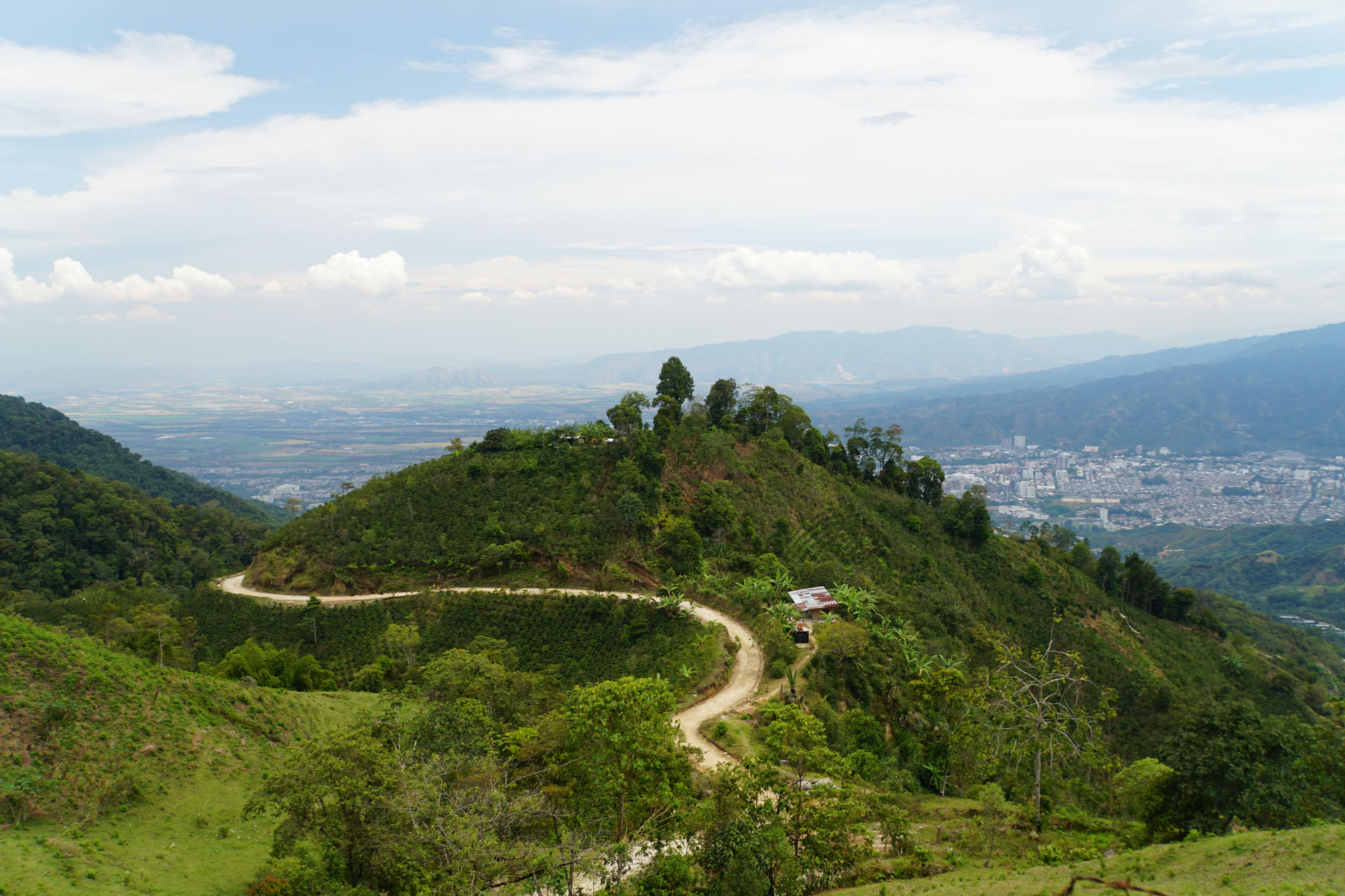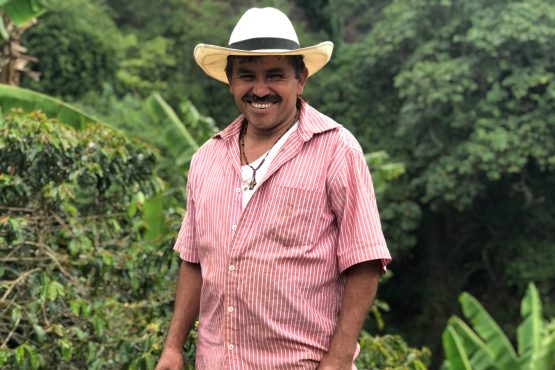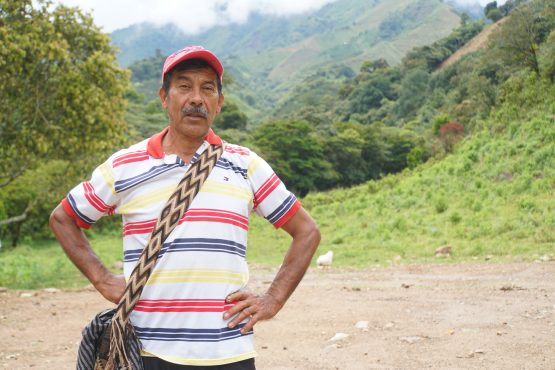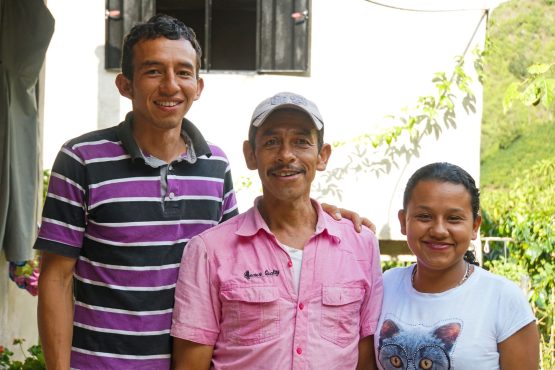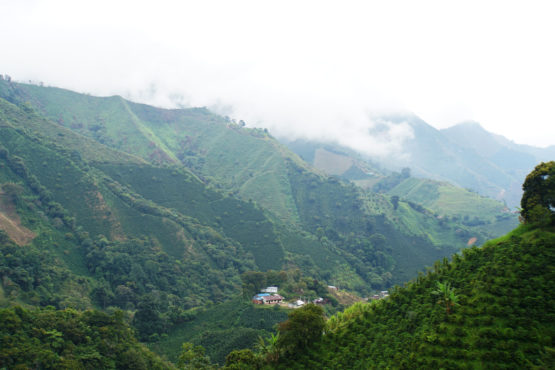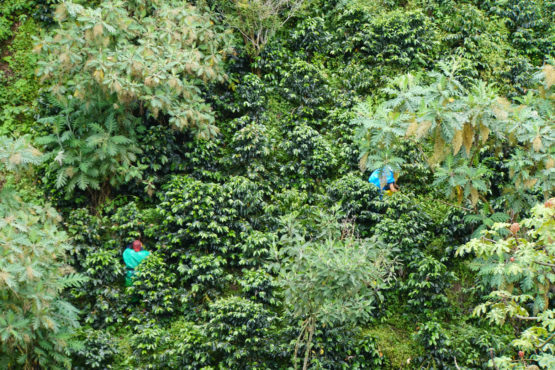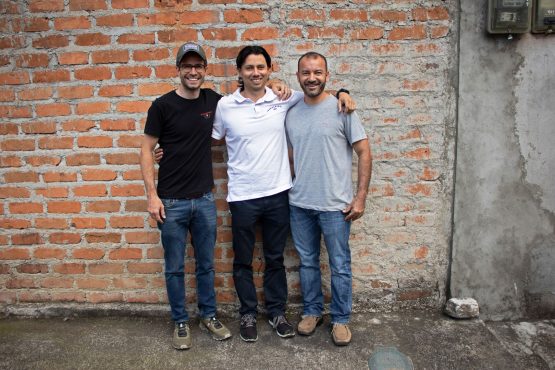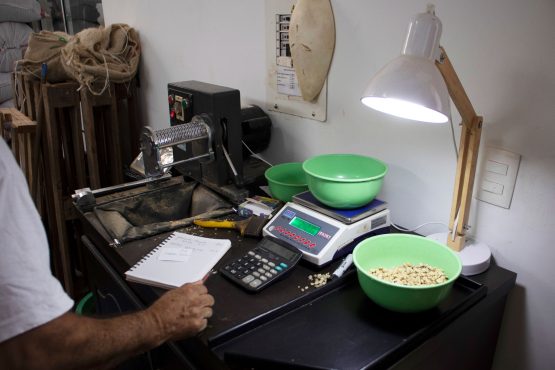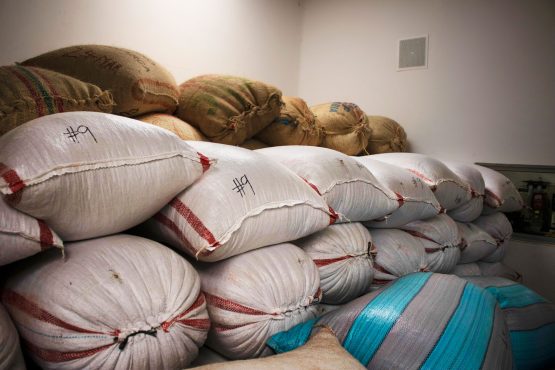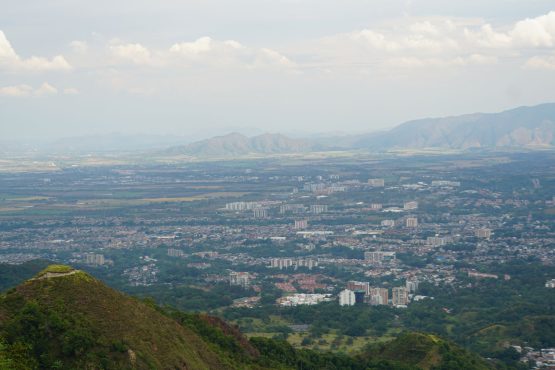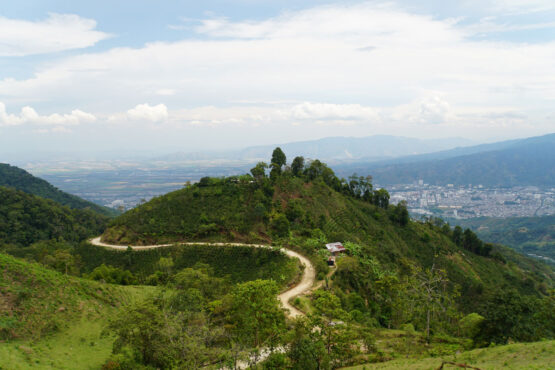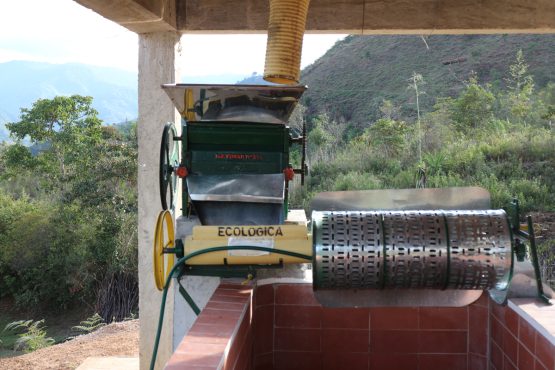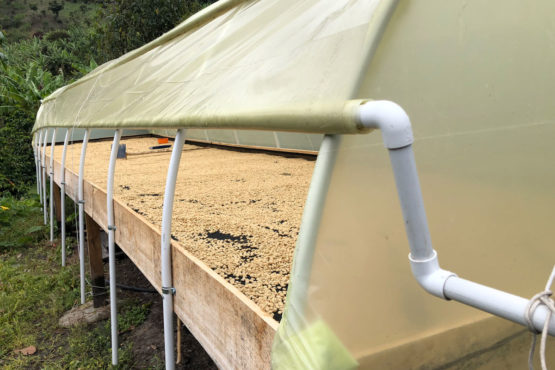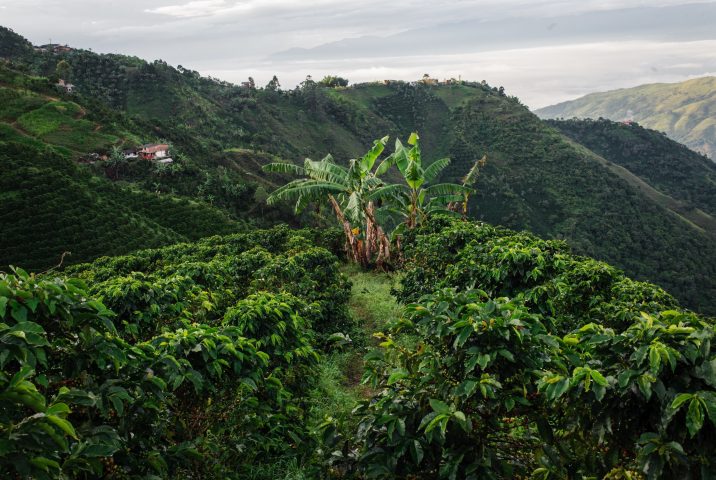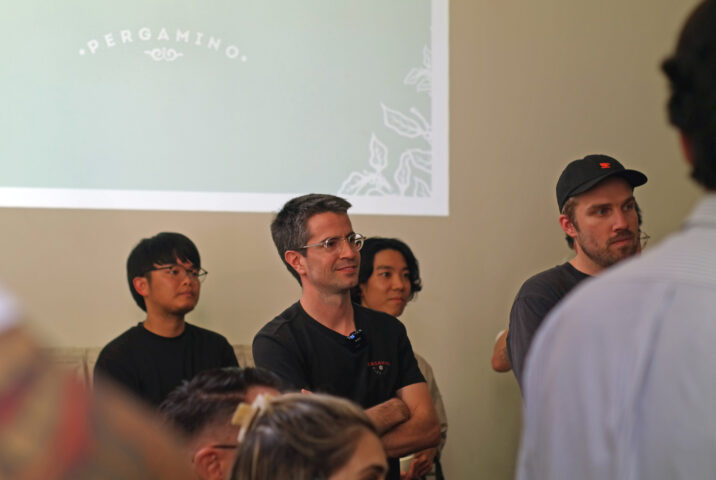Small Producers of Ibagué
Sweet and creamy, with white peach, red apple and lemon curd. Great balance and sweetness.
This coffee comes from around seven smallholder farms that are situated near the towns of China Alta, Santa Isabel and Cajamarca, which are near the municipality of Ibagué in the Colombian state of Tolima. These villages are located on steep mountains to the north-east of Ibagué, which creep up fast, going from 1,300 meters above sea level to 2,000 meters in a matter of 30-40 kms. Due to the steep terrain and bumpy back road that is required to get there, they take around three hours to access via car.
The farms that contributed to this lot are small – around three hectares in size – and are located at 1,850m above sea level. They farm traditionally, and grow a mix of Caturra, Castillo and Colombia coffee varieties. Fertilisation occurs around three times a year, usually after manual weeding, and pesticides are rarely used. The coffee is selectively hand harvested, with most labour being provided by the farmers and their families.
Central Ibagué serves as the capital of Tolima, and it is the political, commercial and cultural epicentre for the state. Because the city is easily accessible and well-connected, Pergamino have established a warehouse and collection point, managed by longtime employee Gonzalo Pérez. The facilities include a physical assessment lab, where green parchment is assessed and quality is recorded, a cupping space, and ample storage. Here, local farmers deliver small lots (around 100-150kg) of dried parchment every two to three weeks during the harvest. Upon delivery, a sample of the dried parchment is milled and assessed for physical attributes, including uniformity of size, presence of defects, moisture content and seed to hull ratio. If the coffee passes the physical assessment, it is accepted and the farmer receives their first payment for the coffee, calculated by the weight delivered and a base rate that includes a premium on top of the current local market rate.
The coffee is then sample milled, roasted and assessed for quality by Gonzalo and his crew of trained cuppers, and sent weekly to Pergamino’s QC lab in Medellín for further assessment by their expert team. There, each lot is carefully evaluated and, depending on the cup score and profile, sorted into different grades of quality and combined into larger volumes or kept separate as a single estate lot. Feedback on each lot is relayed back to the producer and after it has sold, a second payment is made to them according to the premium the coffee attracted.
The team at Pergamino cups through hundreds of small lots at their QC lab in Medellin, to select the coffees that are blended together into this special regional lot. The coffees included were chosen for their outstanding cup profile and distinct regional characteristics.
The region surrounding Ibagué is the traditional home of the Pijao people, a loose federation of indigenous communities who shared a similar language and culture. Beyond Tolima, the Pijao territory once spread all the way to the departments of Huila in the south and Quindio in the west. Because the Pijao had such an extensive realm of influence, their cultural heritage is still visible throughout various small towns across Colombia every June 21st, when many gather on the streets to celebrate the ‘Pijao New Year.’
ABOUT TOLIMA
Coffee from Tolima has historically been very difficult to access due to the region’s isolation and instability. For many years this part of Colombia was under the control of Colombia’s notorious rebel group, the FARC, and as a result, it was unsafe and violent. Since 2012, safe access to this region has been possible as a result of peace talks between the Colombian government and the rebels. Since this time some stunning coffees from small producers have become accessible to the international market.
The word ‘Tolima’ comes from the local indigenous language and means a “river of snow or cloud”. The region sits on the Cordillera Central, in the middle of the three mountain ranges that provide a range of microclimates well-suited to high-quality coffee production. Coffee is the leading agricultural activity in the region, followed by beans and cattle.
The most well-known regions in Tolima for specialty coffee are Planadas and Chaparral in the south. This coffee comes from the areas surrounding Ibagué, which is further north in the state. The city is also known as the “Ciudad del Abanico” or the “city of the folding fan” because when you look at it from the sky the rivers running from the mountains split up the crops of rice and cotton, and it looks like a beautiful handmade folding fan.
Our export partners for this coffee, Pergamino, have worked hard commercialise specialty-grade coffee throughout Tolima, and are now able to source some outstanding coffees from very dedicated producers. Head here to learn more about the work of Pergamino.
HOW THIS COFFEE WAS PROCESSED
This coffee was processed using the washed method at each farm’s ‘micro-beneficio’ (mill).
The coffee was pulped using a small manual or electric pulper, and then placed into a fermentation tank, where it was fermented anywhere from 12 to 48 hours (depending on the weather and the farms location) and then washed using cold, clean water.
It was then carefully dried (over 10–18 days) on parabolic beds, which are constructed a bit like a ‘hoop house’ greenhouse, that act to protect the coffee from the rain and prevent condensation dripping back onto the drying beans. These beds have adjustable walls to help with air flow, and temperature control to ensure the coffee can dry slowly and evenly.
Once dry, the coffee was delivered to Pergamino’s warehouse, where it was cupped and graded, and then rested in parchment until it was ready for export.
